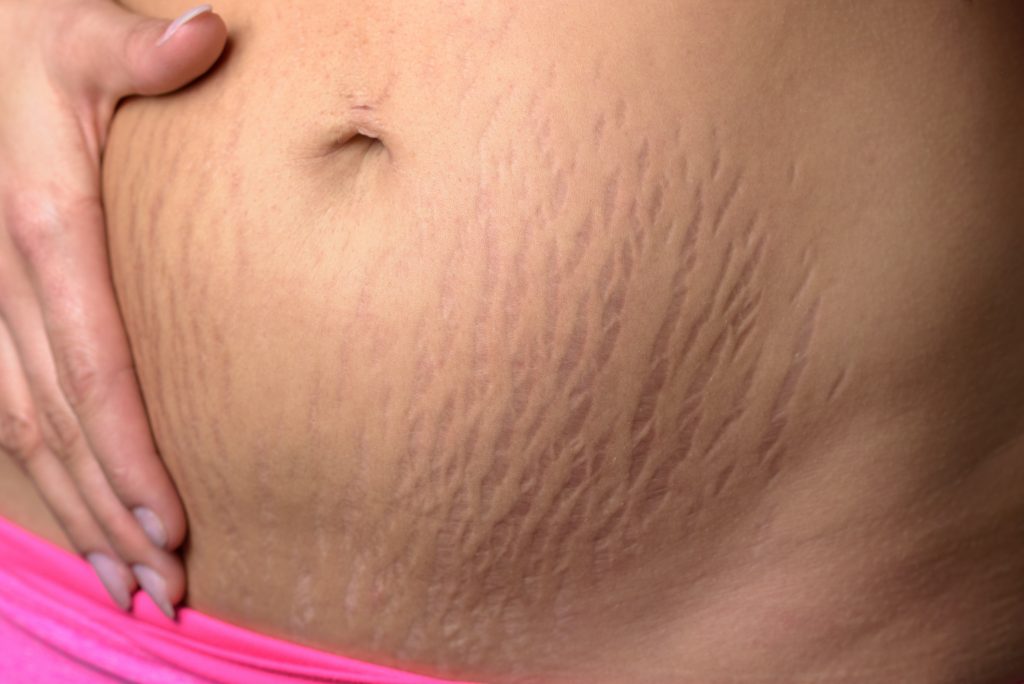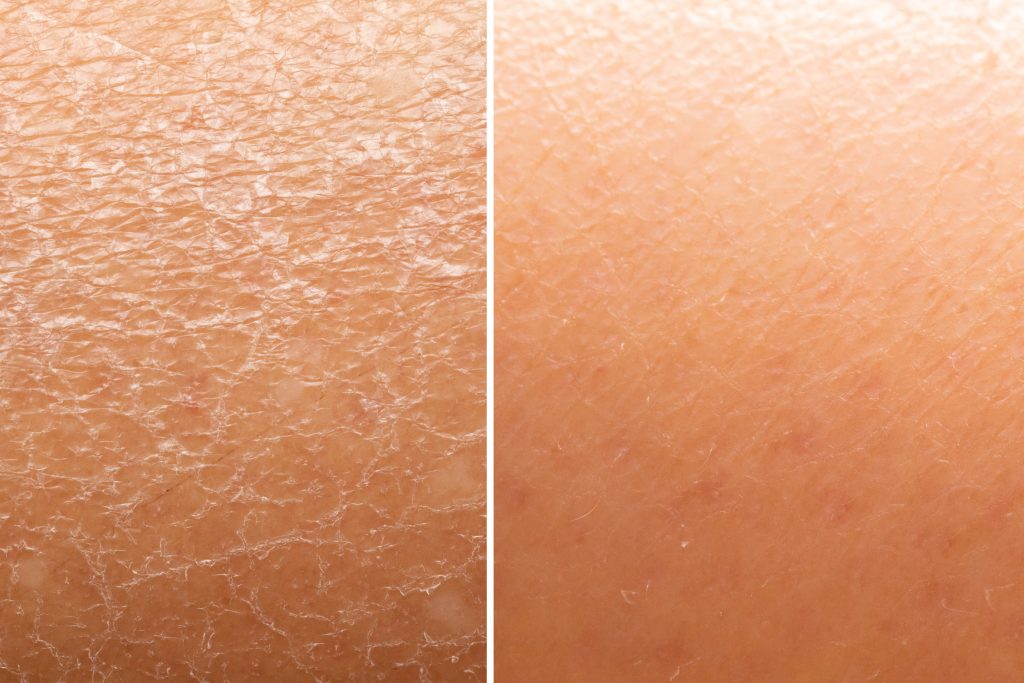Stretch marks are a common problem for many, causing embarrassment and discomfort in equal measure. They can affect people of all ages and genders and often show up during times of physical or hormonal change. Why are my stretch marks itchy you may ask. Read on as this blog will look at stretch marks, their meaning, the causes behind itchy stretch marks, how to alleviate them and prevention methods.
What Are Stretch Marks?
To answer the question of why are my stretch marks itchy, It is essential to know what stretch marks are in the first place. They can appear anywhere on your body, ranging from white-to-red lines. Aside from appearance, you might also notice extreme itchiness, in particular with newly developed stretch marks during pregnancy and other weight fluctuations.
Stretch marks, also known as ‘striae’ scientifically, are scars on the skin when your body expands faster than its natural production of collagen. This results in skin thinning and dermal tearing from these visible scars. As they heal over time, they fade to an off-white tone, making them difficult to see.

Find out what is causing the itch, so you can prevent it from happening in the future.
What do itchy stretch marks mean?
Itchy stretch marks can signify different things, and it is crucial to understand the cause to treat the issue properly. Stretch marks are scarring when collagen changes occur, and they tend to itch when they develop.
Itching can be a sign that there is something wrong with the skin. When this happens to your skin, there could be several reasons. One reason could be from dry skin conditions or contact dermatitis caused by irritants contacting the affected area. If an infection is involved, you’ll be prone to stretch marks, and other symptoms, such as redness and swelling, should be present.

Many factors can contribute to itchy stretch marks!
Causes of stretch mark itch
Hormone changes.
Hormone changes can have a significant impact on the formation of stretch marks. During pregnancy, puberty, or rapid weight gain, hormones such as estrogen cause skin to become thinner and more elastic. This makes it easier for underlying tissues to break through the dermis layer of skin during stretching.
As a result, stretch marks form when these tissues are pushed through the thinned-out layer of skin, causing indentations in the surface. Additionally, hormones reduce collagen production, weakening your skin’s ability to resist tearing when stretched beyond its limits.
Dry Skin
Dryness can occur anytime there is excessive water loss from your skin. This often occurs during weather conditions combined with low humidity levels indoors or outdoors. This lack of moisture leads to dryness, which then irritates existing scars and causing itchy skin. Therefore, the itchiness will occur regularly if a moisturising routine isn’t established soon after noticing.

Dry skin is a big contender that makes your stretch marks itchy!
Allergies and irritants
Allergies are another potential reason that make you think. It is common to experience this symptom when you come into contact with specific beauty products like hair dyes, lotions, and fragrances. Additionally, allergens like pollen and dust mites can contribute to this symptom. Therefore, ensure you’re aware of potential environmental allergens before attempting treatments.
How to alleviate itchy stretch marks?
Stretch marks aren’t harmful, but they can cause discomfort and pose a cosmetic treatment if these stretch marks are becoming a problem in your life. The following tips will help treat itchy stretch marks so you don’t have to ask, “why are my stretch marks itchy?”.
Keep skin hydrated.
Hydrating your skin regularly is critical to reducing any dryness, which worsens existing stretch marks, thus contributing to itchiness. This can be done by taking regular showers while using lukewarm water.
Also, make sure that after you pat yourself dry, immediately apply moisturisers. It is recommended to apply formulated moisturisers specifically for sensitive skin, like almond oil/ coconut oil/avocado oil. This will help keep moisture locked within the deeper layers ensuring supple soft skin all day.

Hydrating your skin from the inside helps combat itchy stretch marks.
Avoid scratching and rubbing.
Although it is tempting, avoid scratching/rubbing at affected areas. It is important not to aggravate your stretch marks further and potentially result in permanent damage.
This leads to more inflammation and irritation in the affected area. Additionally, over-scratching or rubbing an area may also result in scarring, making you wonder why my stretch marks are itchy even more. To avoid this issue, it is best not to scratch or rub any areas where you think you might develop stretch marks in the future.
Use gentle medicated creams.
Gentle-medicated creams contain ingredients known for reducing inflammation and are beneficial in alleviating itchy stretch marks. These include aloe vera, shea butter, and vitamin E, which should be anti-itching while nourishing damaged areas and healing quicker.
During pregnancy. It is most common for pregnant women to develop itchy stretch marks during pregnancy. Furthermore, without applying medicated creams and serums, the stretchmarks will become more prominent once the baby is born.

Moisturising is the most significant prevention step to avoid stretch marks altogether!
Prevention
You can help prevent stretch marks by adequately moisturising and the surrounding skin. It is also essential to stay hydrated to keep your skin hydrated and reduce itchiness.
In contrast, preventing weight fluctuations during a lifetime is nearly impossible. You can however ensure control of some causes of weight gain, such as avoiding steroid use or by living an active lifestyle.
It goes without saying that prevention is always better than cure. Therefore, doing all you can to prevent new scars from appearing will save you time and money on expensive treatments!
Never Say, “Why Are My Stretch Marks Itchy?” Again!
Itchy stretch marks are common and can be caused by various factors. It is essential to identify what is causing your itchy stretch marks so that you can prevent and treat them. Moisturising and topical treatments such as creams or oils are all solutions, so you don’t have to ask why are my stretch marks itchy. If you’ve tried removing your scars without success, consider stretch mark removal and contact us!

